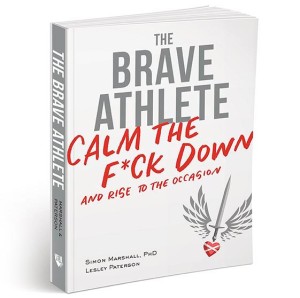Our coach mentorship program isn’t about creating clichéd Mr. Miyagi moments so you reach multisport enlightenment. It’s about helping new triathlon coaches find their feet while helping other people’s feet get faster. Our combined experience in triathlon racing and endurance coaching has taught us some very valuable lessons….
- Coaches need coaching too
- If a coach claims to have all the answers, they’re always wrong.
- Many coaches are actually trainers without realizing the difference. This is fatal.
- Many coaches assume they know what each athlete needs and wants. And they are often wrong. See #3.
- Most coaches haven’t competed themselves at the very top professional level. Experience never replaces scientific knowledge (some of the worst coaches are former pros!) but it does help to shape and modify scientific knowledge to make it more useful. This is why some of the world’s best coaches ARE former pros (our fave is Siri Lindley!).
- Virtually all coaches neglect the psychology of how to change someone’s behavior, how to develop or improve the mental skills needed to cope with the demands of training and racing, and how to help athletes be confident and happier.
These observations are not meant as criticisms of most current coaches or their methods. You only have to look how existing coach education is developed and structured, how coaches are evaluated, and how post-certification training and support services are provided to know why the triathlon coaching ‘industry’ has evolved this way. However, we believe there’s a better way to develop your skills as a triathlon coach: Join a mentorship program.
How do I know if a triathlon coaching mentorship program is for me?
You may already hold a triathlon coaching certification and have started coaching, or perhaps you’ve signed up to a certification workshop. Regardless, coaches at all levels can benefit from mentorship and advice. New or inexperienced coaches often need more help with fundamentals like developing a coaching philosophy, building training session libraries, getting clients, and so on. More experienced coaches often benefit from having a “sounding board” to discuss nuanced elements of training plans, or how to cope with complex or challenging issues such as the psychology of injury or improving the biomechanics of a swimmer’s leg kick. At Braveheart Coaching, we’ve developed a program to help coaches at all levels become better at what they do. Critically, we teach you how to coach people’s brains, not just people’s bodies.
Do I need a coaching qualification before signing up?
We always recommend that new coaches first develop the ‘foundational knowledge’ required to become an endurance coach. This includes understanding concepts such as human energy systems, basic muscle physiology, fitness training principles, physiological adaptations to training stress, periodization, measuring intensity, and so on. If you do not have a college degree in exercise science, a triathlon coaching certification is a great place to start. We strongly recommend that incoming mentees hold a USAT L1 coaching certification.
You can learn more about USAT coaching certifications and clinics here.
What does it involve?
Our program kicks off with a two-day, in-person training course in San Diego followed by one year of monthly phone contact with world champion triathlete, Lesley Paterson, her sport psychologist husband, Dr Simon Marshall, and experienced Training Peaks Triathlon Coach, Alan Greening. Together, we’ve got your back.
The follow-up monthly contact is critical because we don’t believe in opening your head and pouring in information during one weekend that you then regurgitate on command (the so-called ‘bulimic learning’ method that pervades many certification programs and college majors!). No, we believe in helping you learn to think like expert coaches. And this requires you to think about how you think. Err, what? That’s right, thinking about how you think. Learning experts call it ‘meta-cognition’ but we like to think of it as learning to recognize when you’re biases and expectations are getting the better of you, when you need to ask for advice, when to trust your instincts and, most importantly – how to figure out what you’re doing right and what you are doing wrong. (And for the record, we all do some things wrong – the skill is learning to recognize it!).
If you’re interested in learning more about our mentorship program, our coaching curriculum, or you have questions about becoming a Braveheart Coach, please contact Dr Simon Marshall simon@braveheartcoach.com

